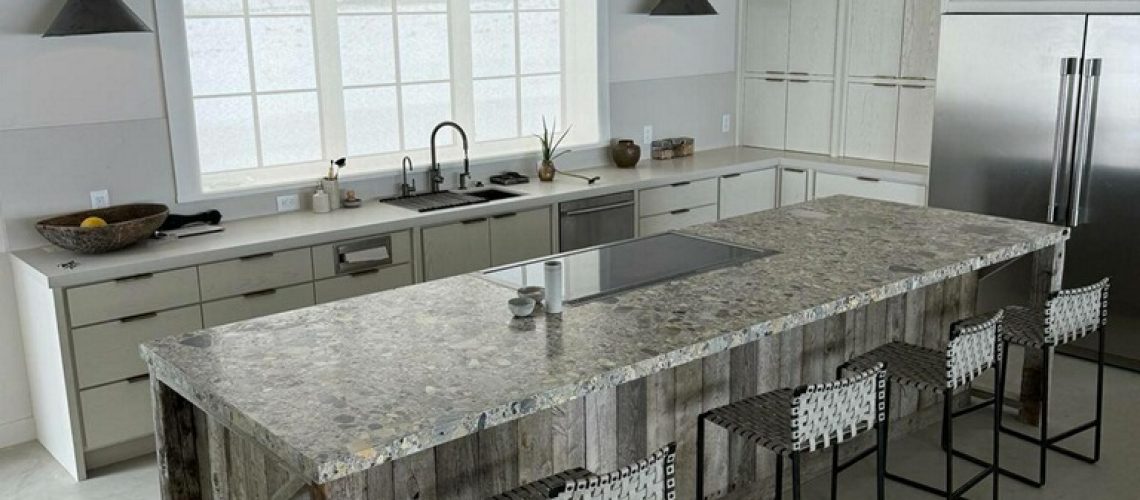In Idaho Falls, the local weather can have a significant impact on your countertops. With varying temperatures and humidity levels throughout the year, it’s important to understand how your chosen countertop material will react.
Whether you’re dealing with the heat of summer or the freezing cold of winter, taking care of your countertops in this unique climate can prolong their life and beauty.
Effect of Temperature Fluctuations on Countertop Materials
Idaho Falls experiences a wide range of temperatures, which can cause materials like granite, quartz, and marble to expand and contract. These natural shifts can lead to damage if your countertops aren’t properly installed or maintained.
- Granite: While granite is heat-resistant, extreme temperature fluctuations can lead to cracking, especially if direct heat is applied without protection.
- Quartz: This engineered stone is more vulnerable to heat than granite, and excessive temperature changes can cause warping or discoloration.
- Wood: Wooden countertops are highly susceptible to expansion and contraction due to temperature changes, which can result in warping or gaps if not sealed properly.
To protect your countertops, avoid placing hot pans directly on them and always use trivets or heat pads.
How Humidity Affects Your Countertop Durability
Humidity plays a crucial role in maintaining your countertops, especially for materials like wood, laminate, and stone. Idaho Falls can have humid summers followed by very dry winters, which causes significant strain on certain countertop materials.
- Wooden countertops: Humidity can cause the wood to expand, swell, or even crack if not sealed properly.
- Laminate: Humidity can cause laminate countertops to warp or bubble, leading to surface damage.
- Stone: Granite and marble countertops are relatively moisture-resistant but can still suffer from prolonged exposure to humidity, which can cause the stone to weaken or crack over time.
Ensure that your countertops are sealed correctly, especially during the most humid months, to prevent damage from moisture absorption.
Winter Weather and Freeze-Thaw Cycles
Idaho Falls experiences cold winters with freezing temperatures, and the freeze-thaw cycle can severely affect certain countertop materials. As water enters the surface and freezes, it can cause cracks and expansion in materials that are not designed to withstand freezing conditions.
- Stone countertops (granite/marble): While these materials are durable, water infiltration during the winter freeze-thaw cycle can lead to cracks or chips.
- Concrete countertops: Concrete is prone to cracking during extreme cold as the moisture inside freezes, expanding and causing structural damage.
Protect your countertops by wiping up any spills immediately and ensuring that the materials are sealed correctly to prevent water absorption.
How UV Exposure Impacts Your Countertops
With Idaho Falls’ sunny summers, UV rays can affect countertop materials, particularly those that are prone to fading or discoloration over time. The sun’s UV rays can break down the molecular structure of certain materials, causing them to lose their luster.
- Quartz countertops: While resistant to staining, prolonged exposure to UV rays can cause fading in darker-colored quartz.
- Wood countertops: Over time, the sun can cause wood to discolor, leading to uneven tones and fading.
- Laminate: Laminate countertops are also vulnerable to UV damage, and fading can occur, especially if exposed to direct sunlight for long periods.
To protect your countertops, consider using UV-resistant sealers and install blinds or shades to reduce direct sun exposure.
Conclusion
Understanding the local weather’s effect on your Idaho Falls countertops helps ensure they last longer. By choosing the right material and performing regular maintenance, you can avoid common issues caused by temperature changes and humidity.
Call Custom Royal Countertops & Tile at (208) 313-8385 for expert advice on countertop care in Idaho Falls’ climate.

